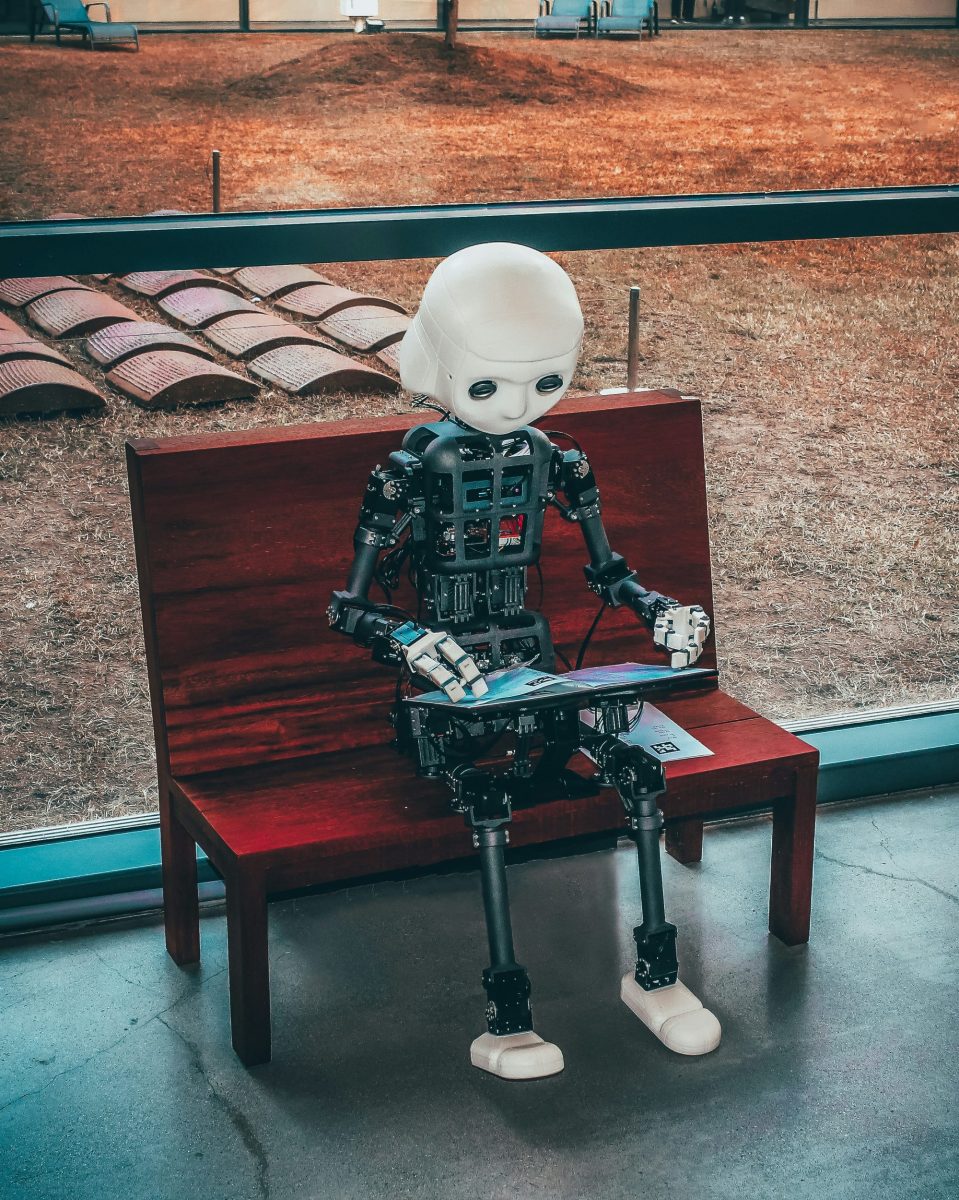AI is all around us.
For those of us who love good writing, AI-generated copy stands out like a sore thumb. It is boring, wordy and generic. It’s what we used to call ‘purple prose’. The internet is calling it ‘AI slop’. It is, quite figuratively, frothing at the mouth.
That’s not to say it’s not useful. We use it in the same way we use Wikipedia – as a starting point or as a prompt. As one of our colleagues says, six paragraphs regurgitated by ChatGPT in the morning is better than staring at a blank page all day!
In this article:
Can I use ChatGPT to edit my book?
Yes and no.
ChatGPT can be used to refine and smooth text, change tone, make corrections, augment text and even translate whole slabs from one language to another – all free of charge. Paid AI-powered editing tools like Grammarly and ProWritingAid can be used to produce error-free text, rephrase poor writing, change tense and tone and check for plagiarism. PerfectIt, while not AI-powered, is a powerful editing tool, which ensures consistency – in headings, tables, lists, referencing etc.
Meanwhile every software platform including this one has a ‘write with AI’ button.
So what then is the role of an editor?
The prevalence of generative AI and AI for book editing has prompted us to consider the role of a skilled editor in the post-ChatGPT world. And we are certain that it is more than just picking up typos and grammatical mistakes!
A human editor brings a critical eye. A human editor asks questions, reads between the lines, spots gaps and challenges you. A human editor asks questions, like: ‘Why are you writing this?’ ‘For whom?’ ‘And why now?’
Is AI going to replace editors?
Every day we are asked: is AI going to replace editors?
The answer is – hardly at all.
We see clients whose work is much better than it may have been without Grammarly or ProWritingAid. And while Grammarly is considered acceptable, few writers will admit to using ChatGPT.
AI for book editing is fine by us. It makes our life easier. The real work – the work we love – is peppering our clients with questions. (Read on to learn more!)
We also find ourselves busier than we were a year ago.
We are hired by experienced authors with publishing contracts who still need editors. That’s either because their publishing houses are no longer offering editing services or, worse, they are using AI to edit long complex scholarly works. This is particularly true of academic publishing where profit margins have been eroded by – yes, you guessed it – AI.
With these clients, we find ourselves cleaning up mistakes introduced into our clients’ work by AI. We fix typos, literals, occasional misspelt names, wrong acronyms, inconsistencies and things that are just plain wrong.
One memorable example of bad AI for book editing changed Baulkham Hills to “the Baulkham Hills of Sydney” – an error that few editors outside Sydney would pick up on, but that any careful reader of Australian history would find irritating. There were hundreds of similar errors in that scholarly work – which together would have undermined the credibility of both the book and the author.
How are editors responding to AI for book editing?
Like everything tech, AI makes time-consuming and rote tasks easier and quicker. It will not, at this stage anyway, replace the ever-curious mind and quick red pen (or track changes!) of a human editor.
This was highlighted to us recently while editing a memoir. Our client had toiled away on his own and had reached a point where he wanted a final proofread before self-publishing. A skilled storyteller and experienced writer, his work had many of the elements that made for a good piece of prose – it had story structure, it was rich with characters and dialogue, and contained a mix of anecdotes and research. The formatting and grammar was, for the most part, spot on. On that level, our work was fairly minimal and his instincts were correct.
Where we earned our money was helping the author turn an average book into an excellent one.
What he really needed was a push to dig deeper into his psyche for the personal revelations that would make his memoir a truly compelling and thought-provoking read.
Read: Do you want AI? ArtsHub looks at Senate inquiry submissions
That’s because, for a memoir to be truly memorable and impactful, it needs the one thing that AI currently can’t provide, and that is you.
By that, we mean a glimpse into the human soul, the untold secrets, the dreams and fears.
An editor can help you reach those deep places, because she has been to those same dark places or similar ones in her own life.
AI, for all its technological smarts, cannot yet understand the human heart. And so, for now, AI is not going to replace editors.
When should I hire an editor?
Consider this: when a piece of writing doesn’t hit the mark, most readers don’t know why.
Maybe they put down the book and don’t feel compelled to pick it back up again.
Maybe the characters don’t lift off the page. Perhaps the structure or the pace is wrong. Or there’s no pay-off once the reader gets to the end – no real ending or satisfying conclusion.
Most irritating of all is an unreliable narrator or an author whose view of the world just doesn’t ring true. In academic writing, it’s the researcher who makes bold assertions without the evidence to back it up.
A skilled editor can tell you exactly what is wrong with your work – and where and how to fix it.
An editor will tell you not only why the reader dropped off, but where. An editor can help your structure narrative or chronology, and round out the ending in a satisfying way.
An editor can challenge your assumptions and encourage you to think more deeply about what you are trying to say. They can pose the questions the reader wants answered, and help you learn new techniques to bring your characters to life. Specialist academic editors can point you to the passages in your paper where the writing is dense or the evidence just doesn’t stack up.
Your prose may tick all the same boxes that an AI tool or AI for book editing can recognise, but if it doesn’t contain elements that emotionally impact, inform or entertain the reader, it is DOA.
Read: 5 AI creative writing tools
The promise of AI is that it takes the hard work out of writing. But the hardest aspect of writing isn’t necessarily the writing itself.
As Mark Twain once said, “The time to begin writing an article is when you have finished it to your satisfaction.”





